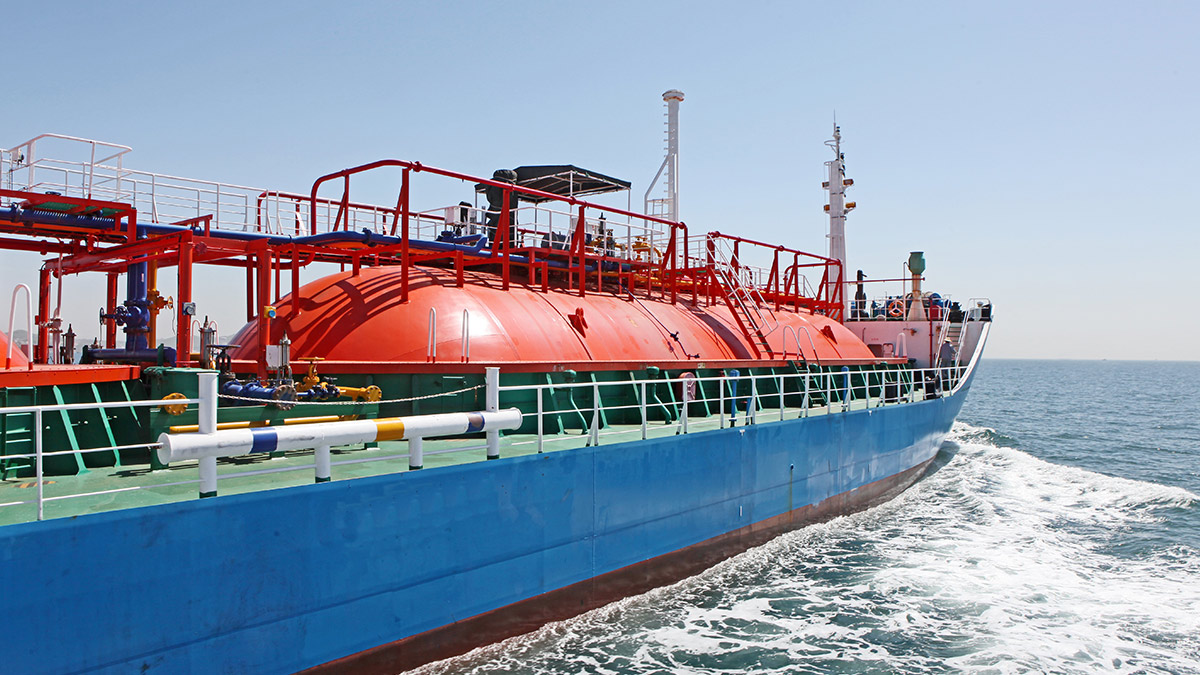Experts: COVID-19’s impact on globalisation, Australia’s relationship with the world

An LNG cargo ship traverses the ocean. (Getty Images)
As the global economy sits in hibernation, there’s consensus that it will not be business as usual when it emerges.
The Brexit referendum and Donald Trump’s election gave oxygen to anti-globalist sentiments.
But this global pandemic which has hit over 3 million people and killed 264,000 is anticipated to turn these sentiments into more bolder concrete actions than mere tariff hikes.
Stockhead spoke with two economists yesterday to get their views on how globalisation will change and where Australia will sit in it.
Both predicted an upheaval in trade markets and greater scrutiny on foreign investment.
A reset rather than a rejection
The Airport Economist Tim Harcourt thinks what will unfold won’t be an outright rejection of globalisation.
In an opinion piece he provided to Stockhead before speaking to us, he characterised the inevitable evolution as a reset.
“In the long-term it will mean a reset not an outright rejection of globalisation especially for a trading nation like Australia,” he said.
“And as citizens have turned to the national state to deal with the crisis, we will see more national building rhetoric and more policy proposals about Australian jobs and growth rather than abstract talk about international ‘competitiveness’ as though globalisation is a zero-sum game not a mechanism to improve the wealth of all nations together.”
Returning to Australia’s shores
There has been talk about bringing industries that have been off-shored back to the Western nations. Manufacturing and call centres have been two commonly mentioned industries.
Some businesses have been forced to bring operations back onshore due to COVID-19 shutting down operations overseas.
Ben Lazzaro, the boss of the Australian Made campaign told Stockhead last month if we can make things locally in bad times, there’s no reason we can’t in good times.
Speaking with Stockhead, Harcourt shared this sentiment and says it is a mutual feeling and best for everyone.
“When [companies] moved offshore, people have found the service quality was not as good,” Harcourt told Stockhead.
“And also these countries wanted to get away and move up the chain.
“With this working from home experiment, some are finding it more effective in terms of productivity; companies might see that as alternative to offshore [centres].”
Harcourt also predicts existing industries will emerge just as strong.
“Rocks and crops will remain steady, from the mining to the dining boom,” he said.
“Even at the height of the crisis, steel production (and demand for Australian iron ore continued) and demand for Australian agriculture will increase as overseas supply is affected by coronavirus.”
Australia’s relationship with China
There’s a clear consensus that the West’s relationship with China will change. Specifically the government and business will struggle to trust them in the future.
“The pandemic started in China so there’ll be scrutiny about the way they conducted themselves,” Melbourne University economics Professor Phillip McCalman said.
“But you’ve got the backdrop of concern, especially from the US, about the role China played in negative economic outcomes in relation to inequality in the US.
“And trying to bring manufacturing to the US – clearly that’s the Trump strategy bringing manufacturing back, ‘make America great again’ – all that rhetoric was up and running before COVID.
“[COVID-19] makes it harder for anyone to say we should trust China in how they conduct themselves at a government level.”
Foreign direct investment
Professor McCalman also thinks that there will be more scrutiny surrounding foreign direct investment.
This too was a worry pre-COVID as seen with the debates over awarding 5G tenders to Huawei. But the aftermath of the pandemic is an ideal time for takeover activity and the government will likely be watching things more closely.
“Pre-pandemic there was more scrutiny going on in terms of foreign direct investment,” Professor McCalman.
“A lot of it was due to the 5G network and the extent to which those security versus benefit issues could be mediated by who has ultimate control of information.
“Now you have a situation where certain companies have been adversely hit by the pandemic and economic shock that makes them targets for takeover.
“The economies that recover first (and China seems to be on that path) may look to pick up companies on the cheap. And there’s a concern that no one wants to lose key assets because of an economic shock like this.
“But if you’re not going to allow for FDI in that environment, you need some other mechanism to help companies survive.
“We’re seeing this with Virgin Australia (ASX:VAH). There’s debate about who will be allowed to buy and on what terms, and the ACCC are wondering what will happen in the competitive environment.”
Related Topics
UNLOCK INSIGHTS
Discover the untold stories of emerging ASX stocks.
Daily news and expert analysis, it's free to subscribe.
By proceeding, you confirm you understand that we handle personal information in accordance with our Privacy Policy.








